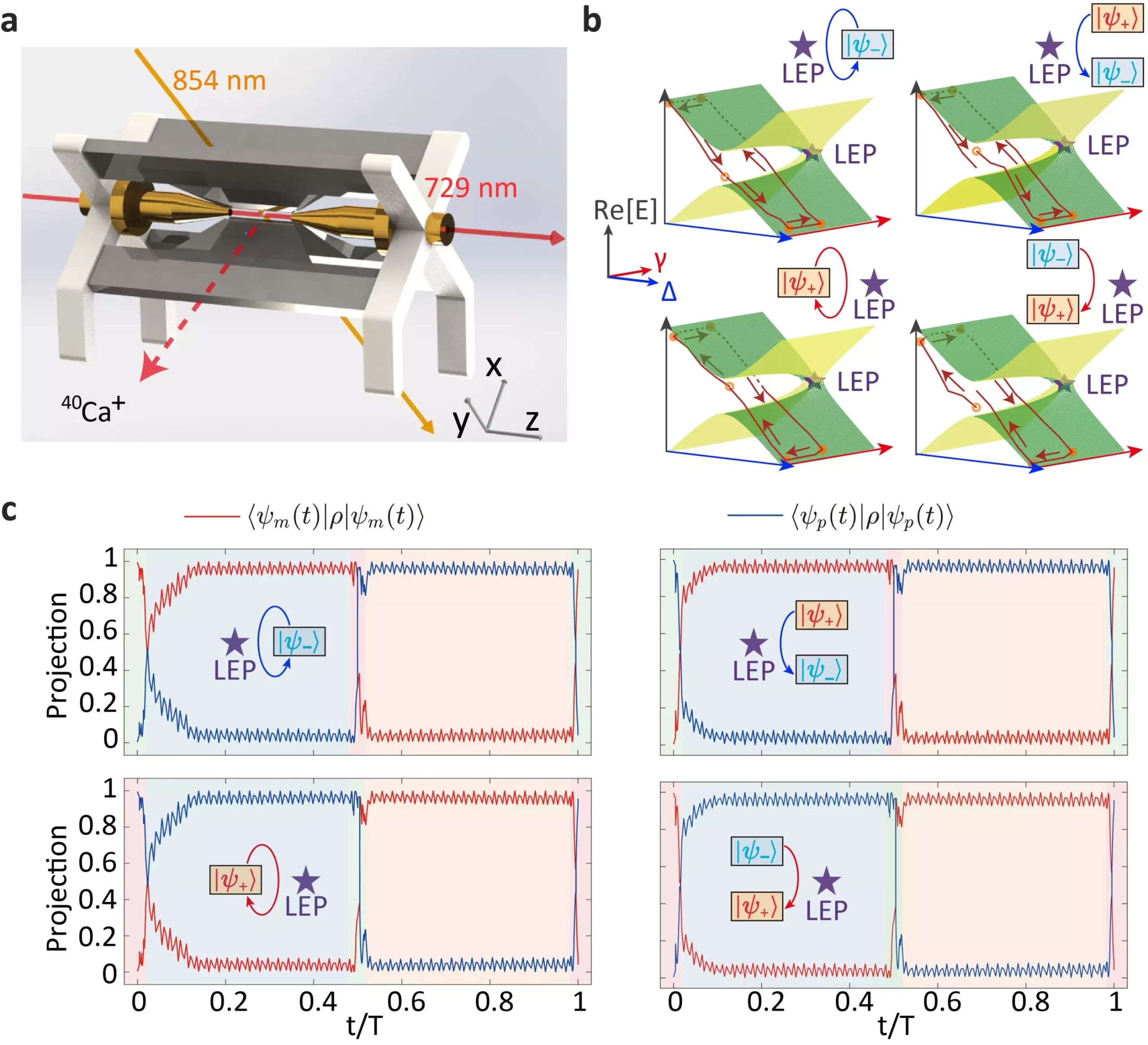Heat engines represent a cornerstone of modern industrial society, transforming thermal energy into useful mechanical work. With a growing demand for efficient energy conversion technologies, researchers are increasingly focusing on innovative mechanisms that enhance performance while reducing energy loss. Amongst these developments, quantum heat engines (QHEs) have emerged as a significant area of study, leveraging the principles of quantum mechanics to drive efficiency to previously unattainable levels. As the field evolves, understanding the nuances of quantum thermodynamics through advanced models is paramount for the development of future energy systems.
Quantum heat engines function as open quantum systems that interact with external thermal baths, resulting in quantum jumps that complicate their operational dynamics. Traditional analyses often use Hamiltonian exceptional points (EPs) to describe these quantum phenomena; however, the unique requirements of QHEs necessitate a shift towards a focus on Liouvillian exceptional points (LEPs). These LEPs provide critical insights into how energy exchange occurs in non-Hermitian dynamics, making them invaluable for studying qubit-based systems, yet they remain underexplored compared to their Hamiltonian counterparts.
Research conducted by a collaborative team led by Professor Mang Feng emphasizes the importance of LEPs of characterizing performance characteristics in quantum engines. Their methods suggest that a full understanding of QHE dynamics cannot overlook the subtleties introduced by quantum jumps, which can vastly alter the system’s efficiency and operational capacities.
The study, recently appearing in *Light: Science & Applications*, reveals intriguing findings about chiral quantum heating and cooling mechanisms. The researchers utilized an optically controlled ion to demonstrate how the direction in which the quantum system encircles a closed loop fundamentally influences its function—as either a heat engine or refrigerator—without the involvement of Liouvillian exceptional points. This groundbreaking distinction underscores the dynamic nature of quantum systems and opens up new possibilities for energy manipulation.
In exploring these mechanisms, the researchers highlight the significance of non-adiabatic transitions and the Landau-Zener-Stückelberg process, which are crucial for achieving the chiral behavior observed. Such operational intricacies further connect the phenomena associated with chirality to broader thermodynamic principles, illuminating pathways for the next generation of quantum technologies.
The implications of this research extend beyond the immediate findings; it suggests novel implications for future investigations into quantum thermodynamics. By linking chirality and energy exchange with topological aspects of Riemann surfaces, the study invites a reexamination of established theories within both quantum mechanics and classical thermodynamics. Professor Feng noted that these discoveries challenge conventional wisdom, showing that asymmetric mode conversion is directly influenced by the system’s topological nature rather than being solely reliant on LEP encirclement.
The team’s work not only marks a significant achievement in understanding quantum heat engines but also proposes new avenues for research aimed at optimizing QHE dynamics for practical applications. As advancements in quantum computing and energy systems continue to accelerate, the insights gleaned from this study could play a pivotal role in developing next-generation technologies that are more efficient and effective than ever before. In essence, the integration of topological principles into quantum thermodynamics represents a promising frontier that could reshape our understanding of energy conversion phenomena in the quantum realm.


Leave a Reply